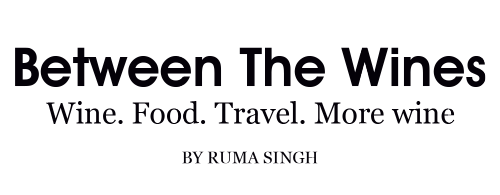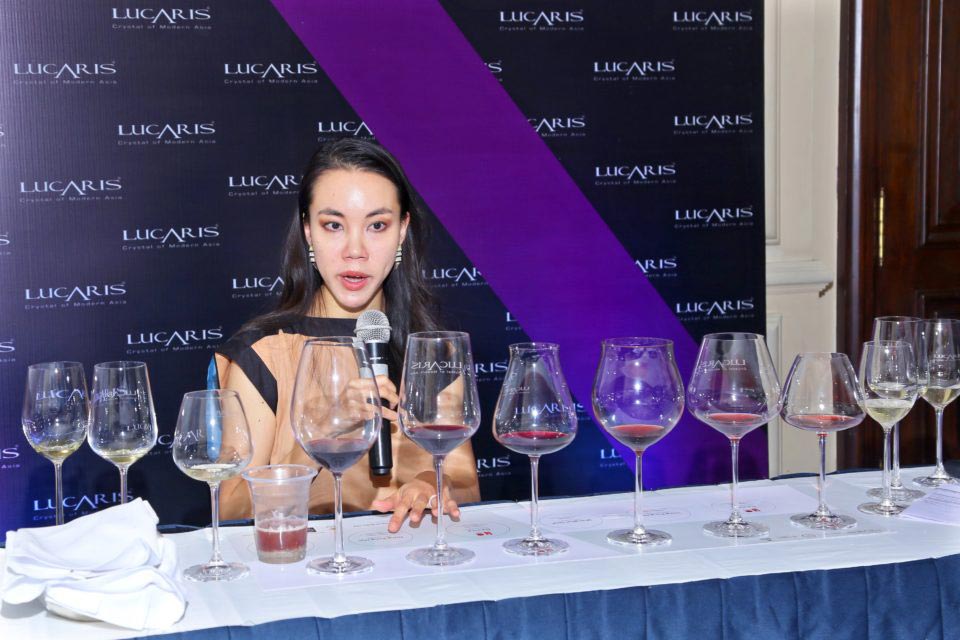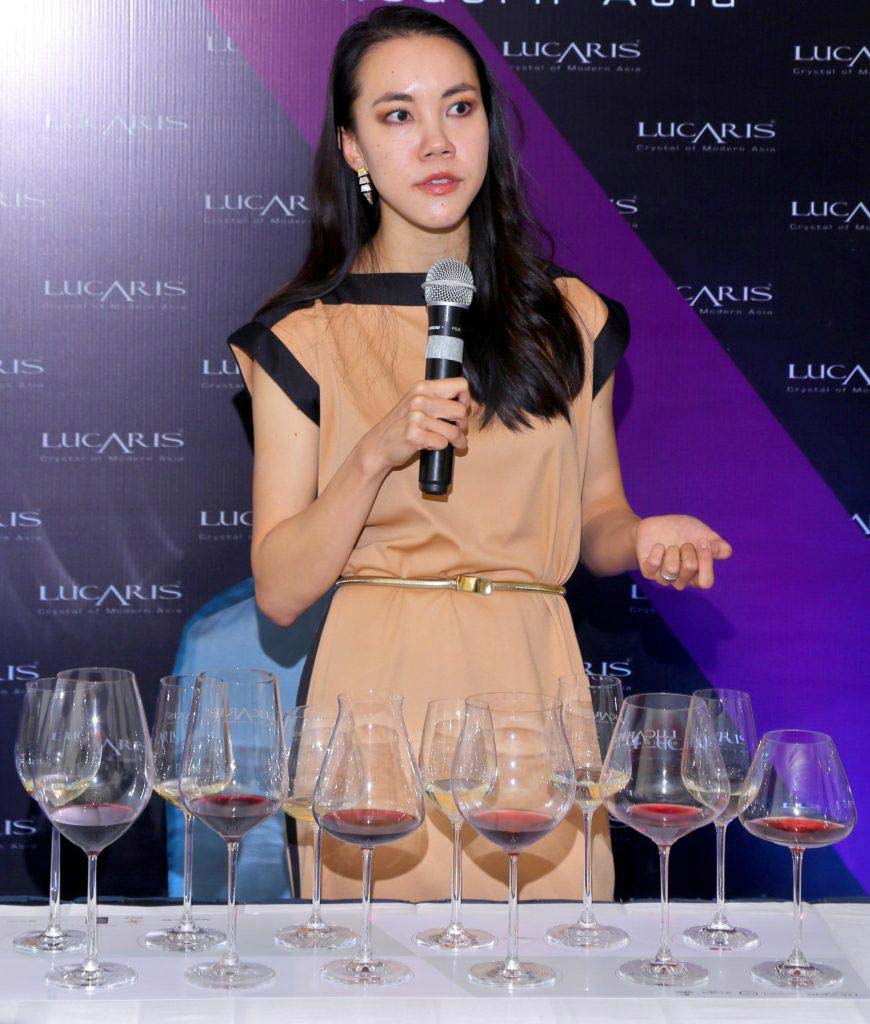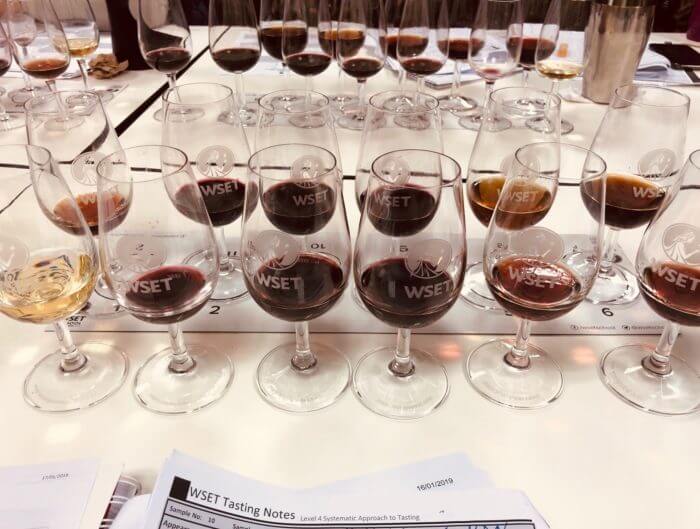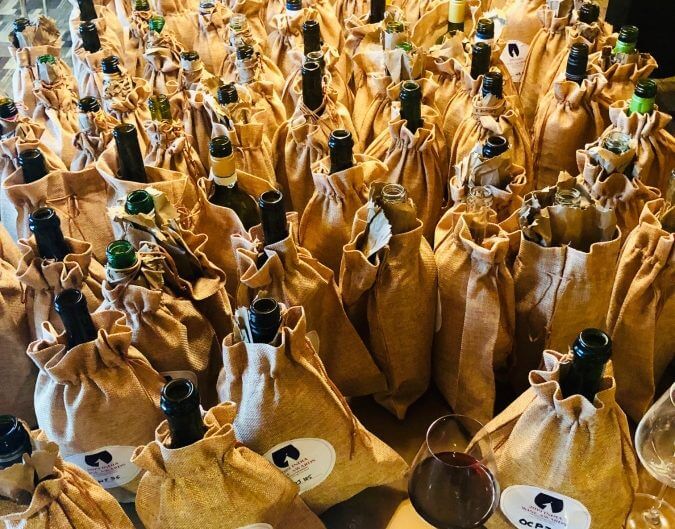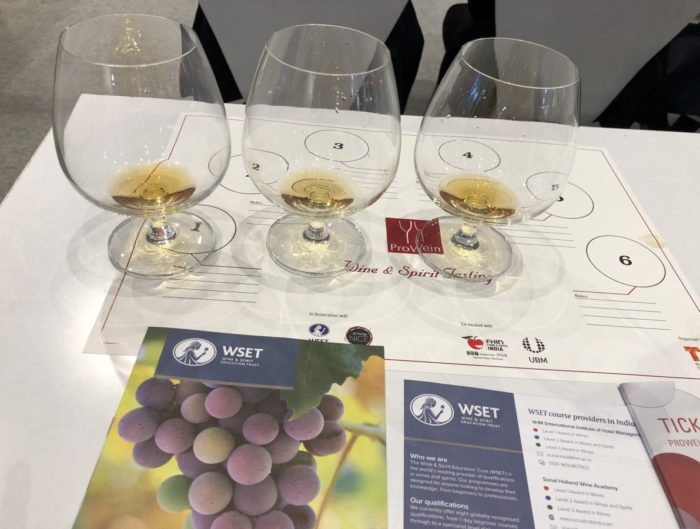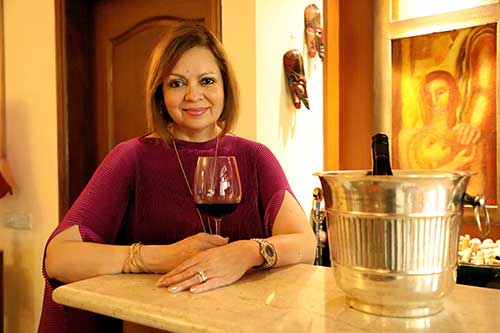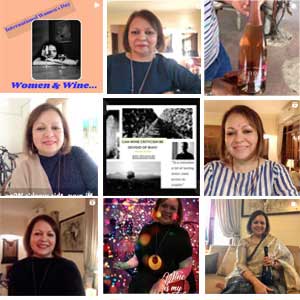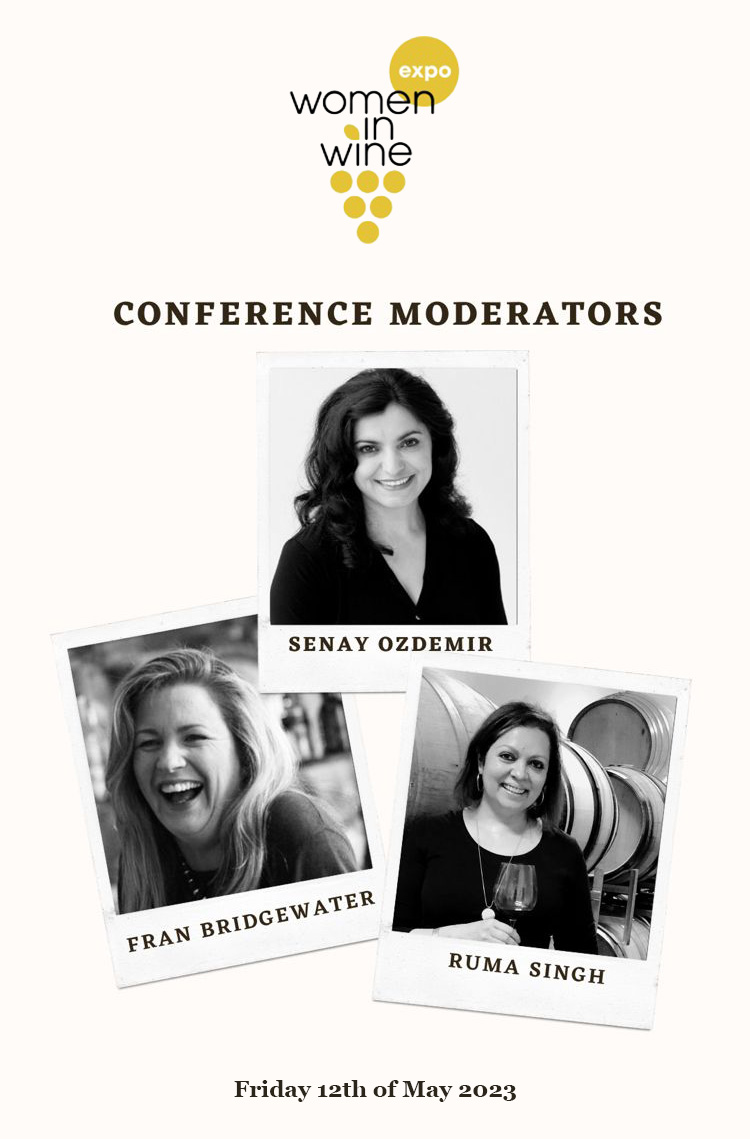Wine is sexy, wine is fun, it’s all-glamorous…. right?
Wrong! says Sarah Heller MW, the international wine industry’s mint-new super-achiever and Asia’s newest, youngest Master of Wine. It’s also a lot of slog, so if you want to be part of the wine industry (in India or elsewhere), be willing to handle the rough with the smooth.
In India to hold a masterclass for Lucaris on how wine glasses can alter your wine drinking experience, she takes a few moments in the sidelines to give me her frank views on all that buzz about wine and shares a few tips on how a little attitude adjustment can be the key to success.
You are the world’s youngest MW at 29 years, that’s quite an achievement given the number of hours of study and commitment required to get to this stage. You are also a Yale graduate and a mum, with your own company. Give us a sense of what it took to get there, and any ups and downs you specifically recall.
It’s certainly had lots of ups, and some downs. The wine industry is very glamorous from the outside, but as those on the inside know it can be gruelling, hard on your body and let’s just say none of us is in it for the money. I’ve been lucky enough to have the full support of my family, notably a husband willing to take up the slack with our baby when I’m not home.
I also had the good fortune to be able to take a pause in my career to focus on studying; for about 10 months, I turned down most work to focus on my studies. At that point I wasn’t a mother yet, so I could make it work, but during the last couple of weeks of writing my research paper I was up all night feeding my newborn son and had just opened a pop-up wine bar, so I was getting by on 2 hours of sleep a night and fighting the extreme guilt of hearing him scream while I was writing up an index about conjoint experiments. On the other hand, having him with me in London when I graduated was so special.
You also got the highest aggregate mark across all units of the WSET Level 4, winning the Vinter’s Cup 2913. Do you need to be a super-wiz or wine virtuoso for this? For those struggling through their WSETs, do give some perspective and some tips.
To be honest, it was a surprise. I’ve always been pretty geeky, but because I was working full-time at that point (late nights, weekends, holidays), I had to jam studying into 2-week bursts each time an exam was approaching. One thing I did that I wouldn’t recommend is spending too long creating your notes – I went through the Oxford Companion and flagged every entry I needed to read, and then probably only ended up reading about 1/3 of them properly. Similarly, I advise against tasting too much without a structure; you’re not studying, you’re just drinking! However, the whole WSET program is designed so if you read the materials thoroughly and internalise their tasting system, you will pass – it isn’t meant to trip you up.
Four years later, you are an MW. The Master of Wine is a very tough exam even for those who have spent a number of years working in wine. Many drop out or just give up. What helped you get through the process?
No doubt, it can be discouraging. The roughly 15% pass rate means that almost everyone fails at least something once (including me). However, I think knowing that even some of the super bright people around me (I had a cancer researcher and an MIT/Stanford-trained computer scientist in my graduating class) had a similar experience kept me from giving up.
You are also a designer. What drew you to this part of the wine industry? Do throw some light on what and how you design, especially packaging and stemware, and why this is important for the world of wine?
I originally studied painting and design, so it’s a thrill to be able to put those skills to use.Part of what I do is help wine companies interested in Asian markets adapt their branding, particularly for new brands. My design collaboration with Lucaris -The Crystal of Modern Asia is especially exciting for me because it’s about functional design. Being able to change somebody’s experience of wine through a product they’ll hopefully use every time they drink it – that’s really powerful. It’s still a work in progress, but our goal has been to truly understand different dining cultures around Asia to ensure our range really fits the way people are enjoying food and wine.
More philosophically speaking, why is education to a certain degree important if you are interested in wine? Or is it?
I believe that having enough understanding to objectively assess what you’re drinking
genuinely increases the enjoyment you can derive from drinking wine. The question is how much education that requires. Venture capitalist Peter Thiel talks about the immense importance of going from 0 to 1, but I’d say for wine the critical enjoyment leap comes from 1 to 2. Beyond that, the marginal returns start to diminish.
Your perspective on Asia’s changing (read growing) role in the Old World-dominated wine universe?
Very exciting – the world is experiencing a general shift from a Euro-centric viewpoint to a fundamentally more diverse one. English and Spanish-speaking former European colonies like Australia or Chile represent the first wave of wine’s evolution into a global beverage and look how exciting that has been. This next phase (both in Asia and Africa) is going to take it to places we never thought of.
… and being on social media as a wine communicator today? Important? Or not?
Essential and unavoidable – the generation that relied exclusively on print media is cutting back its wine consumption and the new generation doesn’t read anything longer than 140 characters. I’m exaggerating, but the importance of social media can’t be overstated.
Final words of advice to young folk who want to work in wine but don’t know how to go about things…. or find fulfilling jobs, especially the wine industry in India.
I wish there were more great jobs, but the brutal truth is that like any “sexy” industry, wine has a huge number of people competing for fulfilling roles and few if any will make you rich.
You need to love the product and more importantly the industry. If you love wine but don’t like working late nights, spending a lot of time on spreadsheets or selling people something they don’t necessarily know a thing about, maybe keep wine as a hobby. But, if you are determined to join the industry, know that most of the people are some of the most generous and supportive you’ll ever meet. Find somebody whose work you admire – a writer, a sommelier, a winemaker – and ask them for their insights on their area of the industry; chances are they will help you find your way too.
